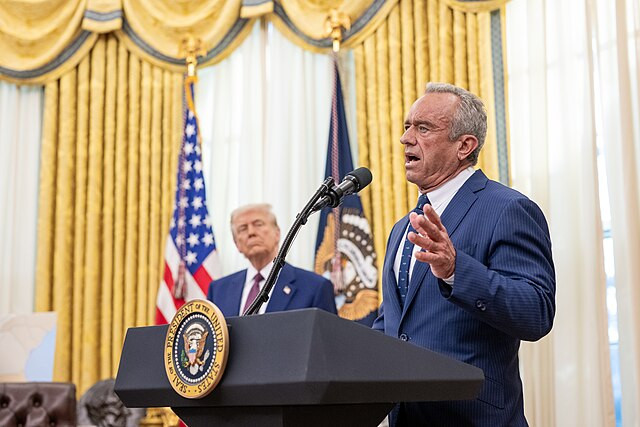Health and Human Services Secretary Robert F. Kennedy Jr. reversed course on Friday, declaring the ongoing measles outbreak in Texas a "top priority," days after initially downplaying its significance. His comments follow the first U.S. measles-related death in nearly a decade and mounting criticism over his handling of the crisis.
"Ending the measles outbreak is a top priority for me and my extraordinary team at HHS," Kennedy wrote in a post on X. He also confirmed that the federal government had sent 2,000 doses of the measles, mumps, and rubella (MMR) vaccine to Texas, where the outbreak has been most severe.
Kennedy's change in tone came after he had previously dismissed concerns about the outbreak during President Donald Trump's first Cabinet meeting. "There have been four measles outbreaks this year in this country. Last year, there were 16. It is not unusual. We have measles outbreaks every year," he said Wednesday. The remarks sparked backlash from public health experts who warned that the surge in cases posed a serious threat, particularly to unvaccinated children.
According to the Centers for Disease Control and Prevention (CDC), the U.S. has reported 164 measles cases across nine states as of February 27, with Texas accounting for more than 140 infections. The outbreak has resulted in nearly 20 hospitalizations, with the majority of cases occurring among unvaccinated individuals. The CDC confirmed that approximately 95% of those infected had not received any doses of the MMR vaccine, while another 3% had only received one of the two recommended shots.
The outbreak gained national attention after Texas health officials reported the death of a school-aged child who had not been vaccinated. It marked the first measles-related fatality in the U.S. since 2015, when an immunocompromised woman succumbed to the virus. Measles was officially declared eradicated in the U.S. in 2000, but recent years have seen an increase in outbreaks, largely due to declining vaccination rates.
Kennedy, a longtime vaccine skeptic and founder of the anti-vaccine group Children's Health Defense, has repeatedly rejected the label of "anti-vaccine" and has insisted that he would not restrict access to immunizations. However, his appointment as health secretary under Trump has been met with scrutiny from public health officials concerned about his past rhetoric.
The measles outbreak in Texas has intensified debates over vaccine policies, particularly in states with looser immunization requirements. Health officials warn that without increased vaccination efforts, measles could once again gain a foothold in the U.S. The CDC continues to emphasize that vaccines are the most effective protection against the disease, which remains highly contagious and can lead to severe complications, including pneumonia and brain swelling.
In a separate development, Kennedy's Health and Human Services Department announced plans on Friday to reduce public participation in the agency's policy-making process, a move that would eliminate long-standing requirements for public comment on key health regulations. The proposal represents a departure from Kennedy's earlier pledge of "radical transparency" during his confirmation hearings before the Senate.
The decision could have wide-reaching implications, as the agency oversees $3 trillion in healthcare spending and regulates programs such as Medicare, Medicaid, and the CDC. Critics argue that restricting public input could weaken oversight and accountability in critical areas of public health.






